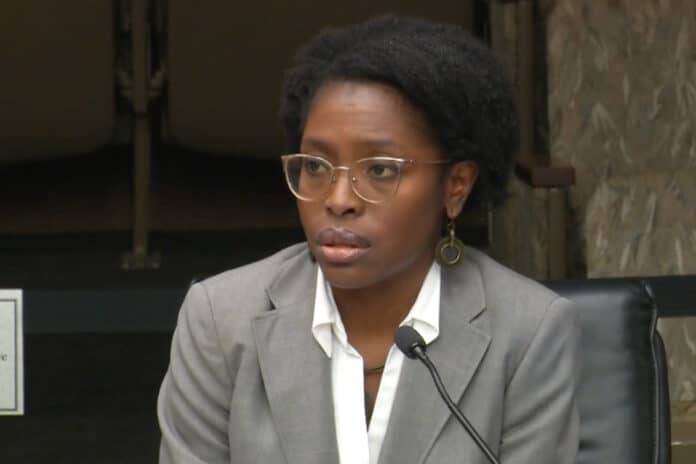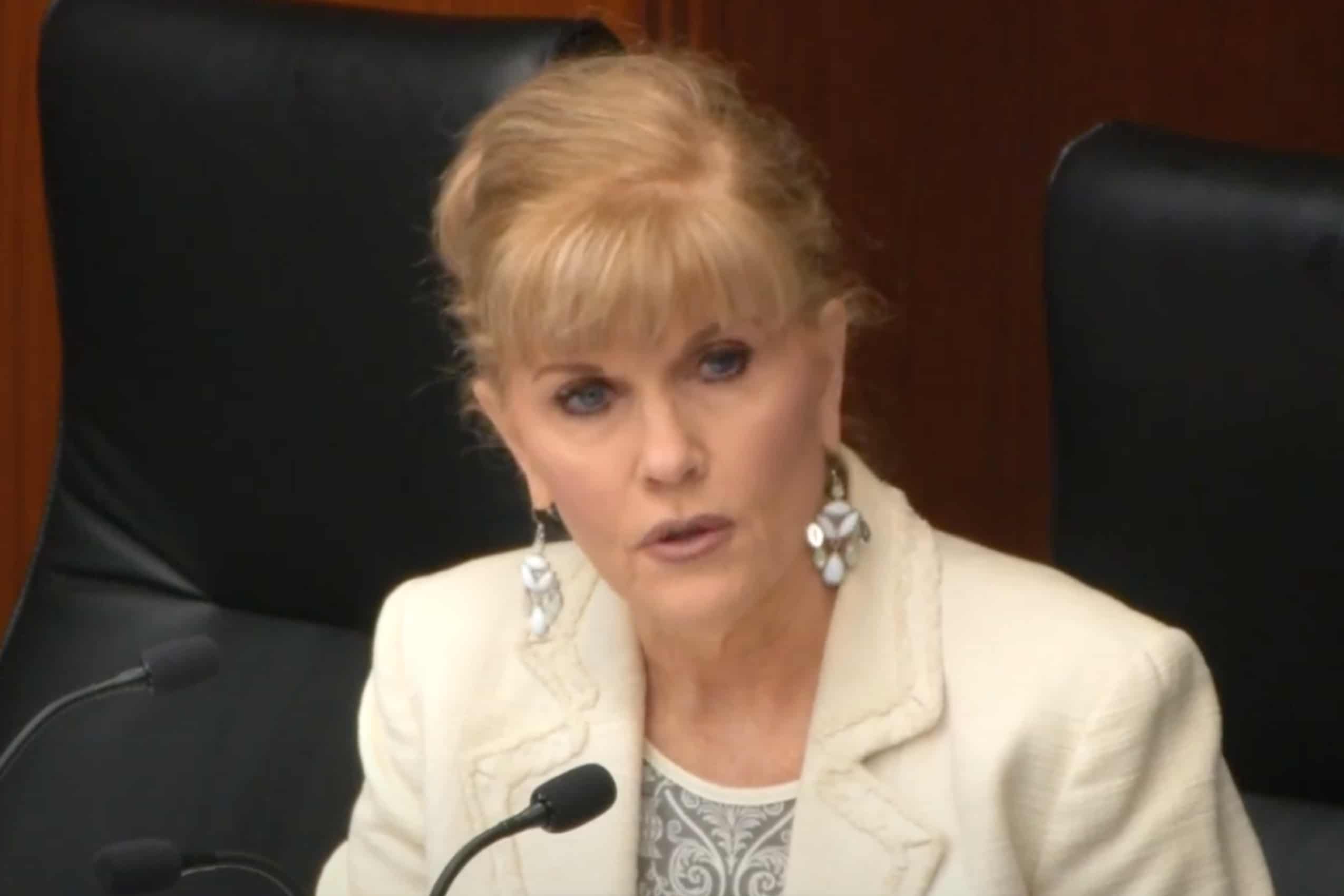
More than two dozen DFL lawmakers are hoping to advance a bill that would require “corporate” landlords to divest some of their single-family homes or else face a $100,000 fine.
HF685 passed on a party-line vote last week in a House committee, where its author said the proposal begins “addressing the trend of corporate and investor owners in the housing market.”
The details of the bill have been scaled back from the original version Rep. Esther Agbaje, DFL-Minneapolis, introduced last year, which would have prohibited any “corporate entity, real estate developer or residential building contractor” from purchasing or building a single-family home and “subsequently [converting] the property into non-homestead residential real estate.”
The version Agbaje presented to the House Judiciary Finance and Civil Law Committee on Tuesday would prevent “corporate owners” from owning more than 10 single-family homes in Minnesota that they use as rental properties. The penalty for landlords violating that cap would be either to divest those properties or receive a $100,000 fine per excess unit, Agbaje told her colleagues during the April 9 hearing. The proposal would exempt single-family residential units owned by governments and nonprofits.
“The way that the bill is currently structured, if they do decide to come into this market, should they move past the 10-unit limit, they would then have that $100,000 fine,” Agbaje said. “That’s a number we believe should hopefully disincentivize corporations to want to come into the (Minnesota housing) market.”
The committee voted to advance the bill to its next stop, the Housing Finance and Policy Committee, on a party-line vote. DFL legislators who have either signed onto the bill or have voted to support it include: Jamie Becker-Finn of Roseville, Ned Carroll of Plymouth, Brion Curran of Vadnais Heights, Sandra Feist of New Brighton, Leigh Finke of St. Paul, Luke Frederick of Mankato, Matt Norris of Blaine and Kristin Bahner of Maple Grove.
Habitat for Humanity Minnesota supports bill
Republicans in the committee criticized the bill as government overreach into the housing market. Rep. Peggy Scott, R-Andover, questioned several provisions, including the creation of a mandatory single-family home rental database that would allow the Attorney General’s Office to track the number of single-family rental properties owned by business entities, including the monthly rents they are charging tenants.

“Quite frankly, it’s none of the government’s business what I am charging for rent unless it’s Section 8 (federally-owned housing),” she said. “I have a real problem with putting out there what the rent amounts are. I don’t see a need for this database at all.”
The legislation is strongly supported by a coalition of housing activist organizations under the umbrella of Minneapolis-based “Equity in Place,” along with the Twin Cities chapter of Habitat for Humanity, whose representatives told legislators that corporate investment in the housing market is a statewide issue that needs to be addressed.
“We appreciate the fine-based approach in this amendment, and would suggest that the resources accumulated be designated to the workforce and affordable home ownership program,” said Cristen Incitti, Habitat for Humanity Minnesota president.
But those representing the single-family home rental industry say such language is unconstitutional on several grounds, including by violating the takings clause and equal protection amendment of the federal and Minnesota constitutions. As of 2023, about 165,000 single-family residential units across Minnesota were rented out, which accounts for about 9 percent of the state’s single-family housing stock.
“A ban on the corporate ownership of single-family homes violates owners’ rights against government takings by instituting a regulation which impermissibly interferes with owners’ rights of enjoyment and disposition of their property,” wrote David Howard, CEO of the National Home Rental Council, in testimony opposing the bill.
“At a time when housing throughout America is challenged by an unprecedented shortage of homes brought on by decades of underbuilding, any legislation or regulation, like HF 685, discouraging and restraining new housing development and investment only serves to make housing more scarce and unattainable,” Howard continued.
Other organizations opposed to the proposal include the Minnesota Realtors Association.
“We’ve heard concerns about large institutional investors,” said Pat Paulson, a longtime Twin Cities realtor and treasurer of the Minnesota Realtors Association. “However, the ownership threshold in this bill is 10 or more. That threshold will cover smaller, local housing providers.”
Lawmakers who fall on different sides of the bill spent time during recent hearings arguing over whether the legislature’s role is to direct the housing market or get out of the way.
“There are just a lot of homes that people could live in if we wanted them to,” said Rep. Finke. “We are taking the resources (we have) and putting them into the hands of fewer people who have more control over what people are trying to access and that will always lead down the wrong path for our communities.”
Rep. Harry Niska, R-Ramsey, pointed out that many corporate investors in the single-family real estate market are pension funds or small family businesses.
“[With this bill] I think you are potentially going to wrap up a lot of other folks rather than the fat cats you think you are applying this to,” Niska said.
Hank Long
Hank Long is a journalism and communications professional whose writing career includes coverage of the Minnesota legislature, city and county governments and the commercial real estate industry. Hank received his undergraduate degree at the University of Minnesota, where he studied journalism, and his law degree at the University of St. Thomas. The Minnesota native lives in the Twin Cities with his wife and four children. His dream is to be around when the Vikings win the Super Bowl.











